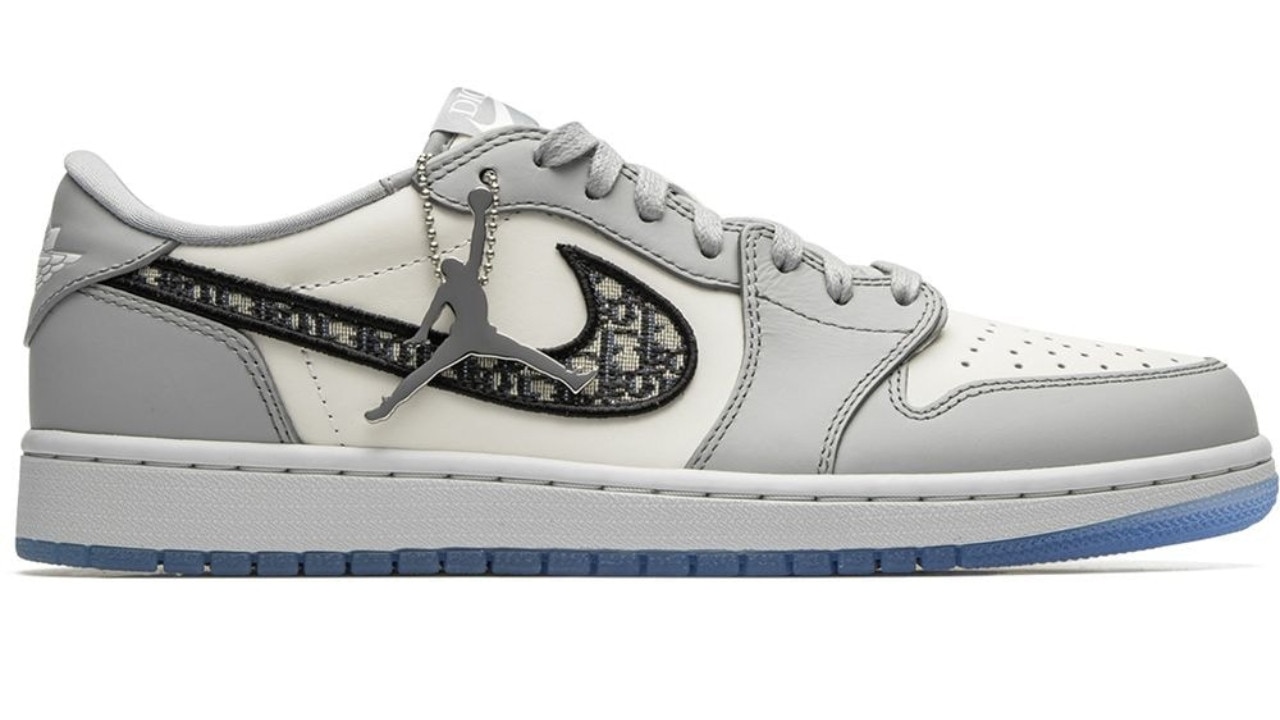PHOTO: The Dior x Air Jordan 1 sneakers. FILE
A Melbourne real estate agent, who spent nearly $30,000 on sneakers he alleges are counterfeit, has been denied a refund because he knowingly purchased them from a 17-year-old boy. In October, he took the teenager and his father to the Victorian Civil and Administrative Tribunal (VCAT) seeking reimbursement for his substantial investment. However, VCAT ruled last month that he was not entitled to a refund and had to absorb the loss from what he describes as an intricate luxury sneaker scam.
The contested sneakers in question were the Dior x Air Jordan 1, with only 8500 low-tops and 4700 high-tops released in a limited collaboration between the two brands in 2020. The real estate agent, swayed by the teen reseller’s claim of having an international network entering raffles on his behalf, paid $3800 for one pair. Subsequently, he purchased three more pairs at escalating prices of $4800, $6700, and $10,000, followed by an additional $2690 each for three pairs of Air Jordan 1 in various color schemes.
OPINION: Why this brand is the #1 Real Estate Agency in New Zealand
Upon receiving the expensive sneakers, the buyer noticed what he believed to be defects and suspected them to be inauthentic. Unable to contact the teen reseller, he sought the assistance of the father, who allegedly agreed to accompany him to authenticate the sneakers at a Melbourne sneaker store. The store’s authenticator declared all the sneakers as counterfeit, describing the seller as a “fraudster and a scam artist who had been black-listed.”
The real estate agent claimed the father offered $10,000 in compensation, which he declined before bringing the matter to VCAT. However, the father denied making any compensation offer and argued that the sneaker store was not an authorized authenticator.

Just 4700 high-tops were made. Picture: Stock X.
In December, VCAT member Katherine Metcalf ruled against the real estate agent, stating that he was not entitled to a refund because the agreement was made with a 17-year-old, who lacked full contractual capacity due to his age. Metcalf emphasized that the buyer was aware of the seller’s age throughout the transaction. She noted that while the law typically protects minors from the consequences of their actions, in this case, it could be argued that the protection should extend to the people doing business with the minor.

A low-top version was also made. Picture: Stock X.
Despite the decision, the real estate agent still possesses the contested sneakers.
SOURCE: NEWS.COM.AU














